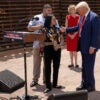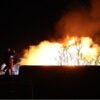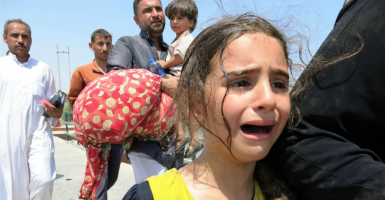It’s easy to adopt a ho-hum attitude about the Middle East at times. To see it as the place where, as comedian Louis C.K. recently said on “Saturday Night Live,” they’ve been having the same fights for hundreds of years, so “it’s boring now.”
The name “Middle East” is fitting for more than just geographic reasons. It’s in the “middle” of most of the stuff we care about: global finance, maritime traffic, energy supplies and migration flows.
But it’s also ground zero for the global Islamist insurgency. And as the fall of Ramadi, Iraq, shows, the Islamic State and al-Qaida are making a great deal of progress over there. That means more will be looking to join them—and spread mayhem elsewhere—including here.
Americans simply can’t afford to not care about the Middle Eastern mess.
The Obama administration has hardly been inactive, but it hasn’t done nearly enough to roll up the Islamic State in Iraq. As a result, the battle for the country keeps seesawing back and forth.
Eventually, the Islamic State will have a tough time holding onto its territory. It could lose its grip on large swaths of the countryside and even major cities. But that may not happen anytime soon. And even then, there will be plenty to worry about.
A great deal of attention has been paid to the terrorist group’s social networking skills and sophisticated videos. But these are symptoms rather than causes of the threat. Its social presence grows because the brand is rising in popularity, much the way Twitter followers shift their allegiance from Justin Bieber to One Direction.
And what makes the Islamic State’s social network a threat is that it linked to human webs—people who can and want to link up with other people and do damage. The best way to damage the power of terrorists online is to deliver disruptive, crushing and humiliating blows to their human networks. When the brand declines, so does its online network.
As long as the Islamic State can continue to advertise that it’s winning against the West, it will attract foreign fighters to the region and inspire extremism and terrorist attacks elsewhere. Stop it from winning, and you minimize the attraction.
It is debatable whether the Islamic State has infrastructure in the Western Hemisphere robust enough to mount sophisticated operations. That’s cold comfort, though. Small, amateurish and loosely affiliated efforts can still kill a lot of people and do a good deal of damage.
Also, defeating the Islamic State may not be the end of the Islamic State. A defeated Islamic State may withdraw back to Syria and fall back into the fold with al-Nusra, an affiliate of al-Qaida, which is threatening to topple the regime of Bashar al-Assad.
If the Iraqis manage to win back their country, the U.S. is going to have to remain as a strategic partner to prevent conditions that might allow the Islamic State to come back. We’ll also have to help the Iraqis deal with the mess in Syria.
Meanwhile, the U.S. is going to have to deal with the destabilizing influence of Iran. There will be a hot debate over how well the Iran deal will, in fact, deal with Tehran’s nuclear program. On the other hand, it’s indisputable that the deal will give the regime a lot more money to meddle in Iraq, Syria, Lebanon, Afghanistan and Yemen.
If the U.S. isn’t there to counterbalance Iran’s destructive influence, no matter what happens to the Islamic State and al-Qaida, that part of the world is going to get a lot worse.
At the same time, there is a long to-do list outside the region. America has to be a global leader in helping take down these foreign fighter pipelines that are shuttling bad people and bad ideas from one corner of the earth to the other.
The U.S. also has to re-engage in the war of ideas. The voices combating Islamist ideology need help. The same social and human networks that spread extremism also carry the countervailing calls for religious liberty and toleration, economic freedom, equity in justice, and political liberty.
America has to start naming the enemy, and embracing its enemies. Here at home we need robust counterterrorism and domestic intelligence programs appropriate to the post-9/11 world in which we live.
Then, perhaps, those “boring fights” can move back down the list of our concerns. Until then, though, it’s simply too dangerous to ignore.
































